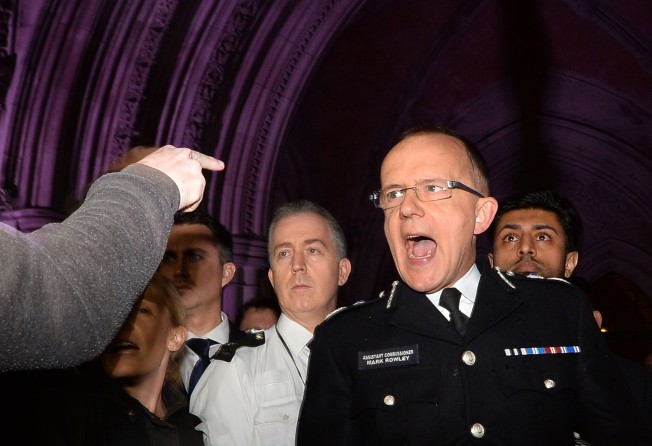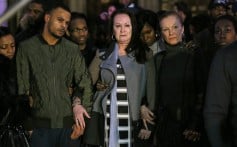Jury vindicates London police over riots killing
Anger greets jury finding that UK police acted lawfully when they shot dead an unarmed man in a 2011 incident that sparked mass rioting in the British capital

An inquest jury on Wednesday largely vindicated London police over the fatal shooting that set off a wave of rioting across England more than two years ago, finding that officers acted lawfully when they shot 29-year-old gang member Mark Duggan.
The jury found that the mixed-race father of two did not have a gun in his hand when he was shot, but said it was likely he’d thrown the weapon away in the seconds before he was confronted by police. Officers truly believed he was armed, they found.
The jurors’ decision drew outrage from Duggan’s family, who spoke to reporters outside the courthouse and insisted justice had not been done. One family member shouted an obscenity at jurors as they left the court. Supporters chanted “no justice, no peace” and nearly drowned out a police press statement.
“The family are in a state of shock ... They can’t believe that this has been the outcome,” family lawyer Marcia Willis Stewart said. “No gun in his hand and yet he was killed – murdered as they have said – no gun in his hand.”
The unrest that followed the August 4, 2011, shooting spread across days, causing hundreds of millions in property damage and killing five people – three of whom were run over by a car while trying to protect their shops. Images of masked youths raiding department stores, of massive fires, and of police skirmishes shocked the country a year ahead of the Olympic Games.
One academic said Wednesday’s decision could play an important role in shaping the nation’s understanding of the riots if it could get people talking about why police blundered, and why Duggan’s death prompted such fury.
“It could be a very important move if it could start a debate,” said Stephen Reicher, an expert on crowd psychology at Scotland’s University of St Andrews and the author of a book on the riots. “The answer has got to be addressed: ‘Why is it that an unarmed young black man had to be shot?’”
Duggan had a criminal record and police suspected him of involvement in gun crime – something treated especially seriously in Britain, where handguns are outlawed and shootings rare.
When intelligence suggested Duggan had picked up a firearm from a gang associate on August 4, 2011, his taxi was intercepted by police in the gritty north London neighbourhood of Tottenham. He ran out, and was shot by police.
Whether Duggan had a gun, and whether he was holding it, when he was killed by police was one of the central questions in Duggan’s case. A pistol was recovered a few metres from the scene, and the officer who shot Duggan said he was sure the gun was in Duggan’s hand as he opened fire. Duggan’s supporters insist he was unarmed.
Crucially, jurors it found that officers at the scene genuinely believed Duggan was armed when they killed him.
Reicher said the judgment risked reinforcing the sense in London’s black community that the justice system was weighted against them.

Police and other officials have already been criticised over their response to the killing. Police didn’t properly notify Duggan’s family of the death and press briefings led journalists to wrongly believe Duggan had shot at officers before being killed.
In a statement made almost inaudible by shouts of “scum” and “liars,” London’s Assistant Commissioner Mark Rowley acknowledged outside the courthouse that trust in the police “is not shared by everyone” and pledged to rebuild relations.
After allegations of cover-up and foot-dragging, the inquest was finally opened on September 16, hearing testimony from roughly 100 people, including witnesses, pathologists and police officers.
Inquests are held in Britain to investigate violent or unexplained deaths, and even though they don’t rule on guilt or innocence, they often play an important role in establishing the facts surrounding controversial cases.
Authorities said policing in the capital was proceeding as usual following the decision.